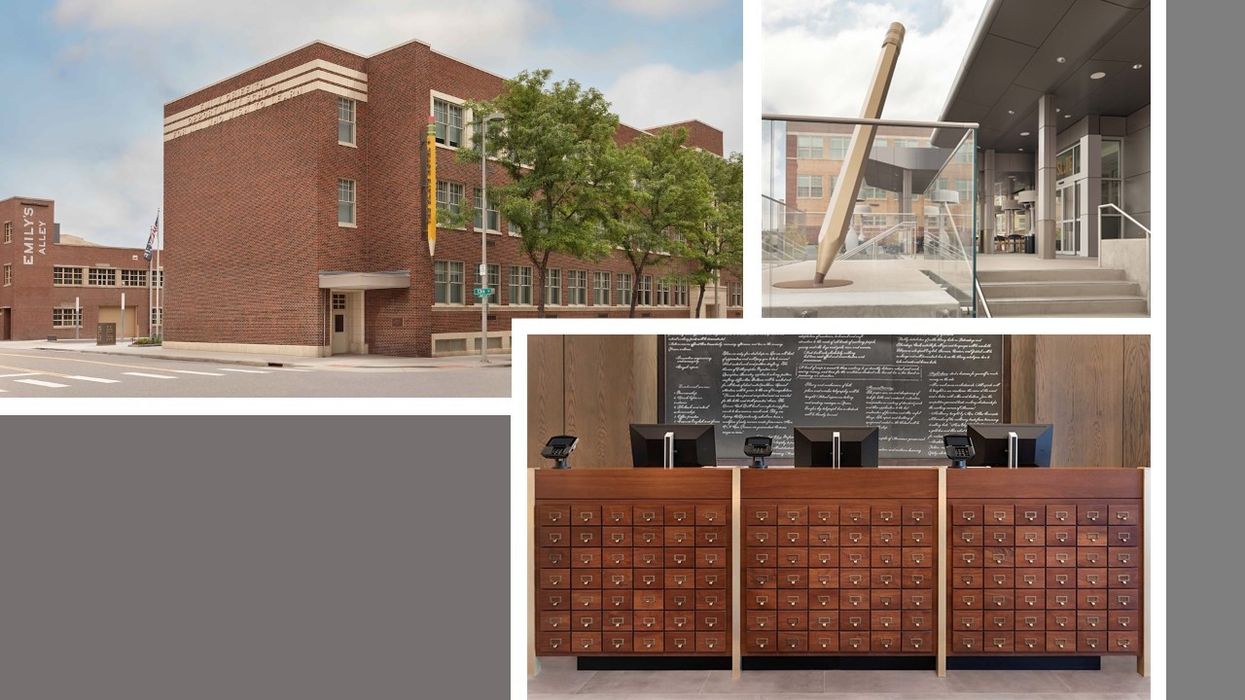NAVIN DIMOND'S STONEBRIDGE Cos. received the Hilton 2022 Americas Development Award for adaptive reuse of The Slate Denver, Tapestry Collection by Hilton in downtown Denver. The awards acknowledge the accomplishments of owners, development partners, and hotel teams in various categories throughout the Americas, Stonebridge said in a statement.
According to the statement, the 251-room Slate Denver in downtown Denver was adapted from the former Emily Griffith Opportunity School building. With modern rooms, a front desk designed as a reproduction file-card cabinet, and the Teachers' Lounge Food + Drink restaurant, the four-story hotel also offers nearly 4,500 square feet of meeting and event space.
"It's an honor to accept this award on behalf of the team," said Dimond, the founder and CEO of Stonebridge. "We are committed to delivering exceptional customer service and creating memorable experiences for our guests, not only at The Slate Denver but also at all our properties. This award is a testament to our dedication to providing unforgettable stays for every guest."
Located near the Colorado Convention Center, The Slate Denver incorporates design features based on the building’s early history as a school. Griffith opened the Opportunity School in 1916 “to provide first and second chances for ‘all who wish to learn,’” according to the school’s website. It was one of the first trade schools in the country, focusing on providing a way out of poverty for its students.
"This recognition reinforces our dedication to delivering an exceptional experience to our guests at The Slate Denver, a truly unique property," said Kirby Kiner, general manager of The Slate Denver.
Other Asian American-owned companies also won Hilton awards, including:
- Neil Amin, Shamin Hotels, Lifetime Achievement Award U.S.
- Mitul Patel, Peachtree Hotel Group, Multi-Brand Developer of the Year U.S.
- Baywood Hotels, led by Al Patel, Dual-brand of the year
- Vision Hospitality, led by Mitch Patel, Developer of the Year, Focused Service U.S.
In June, the Denver-based hotel operator appointed Jim Sega as its new Vice President of Operations.






